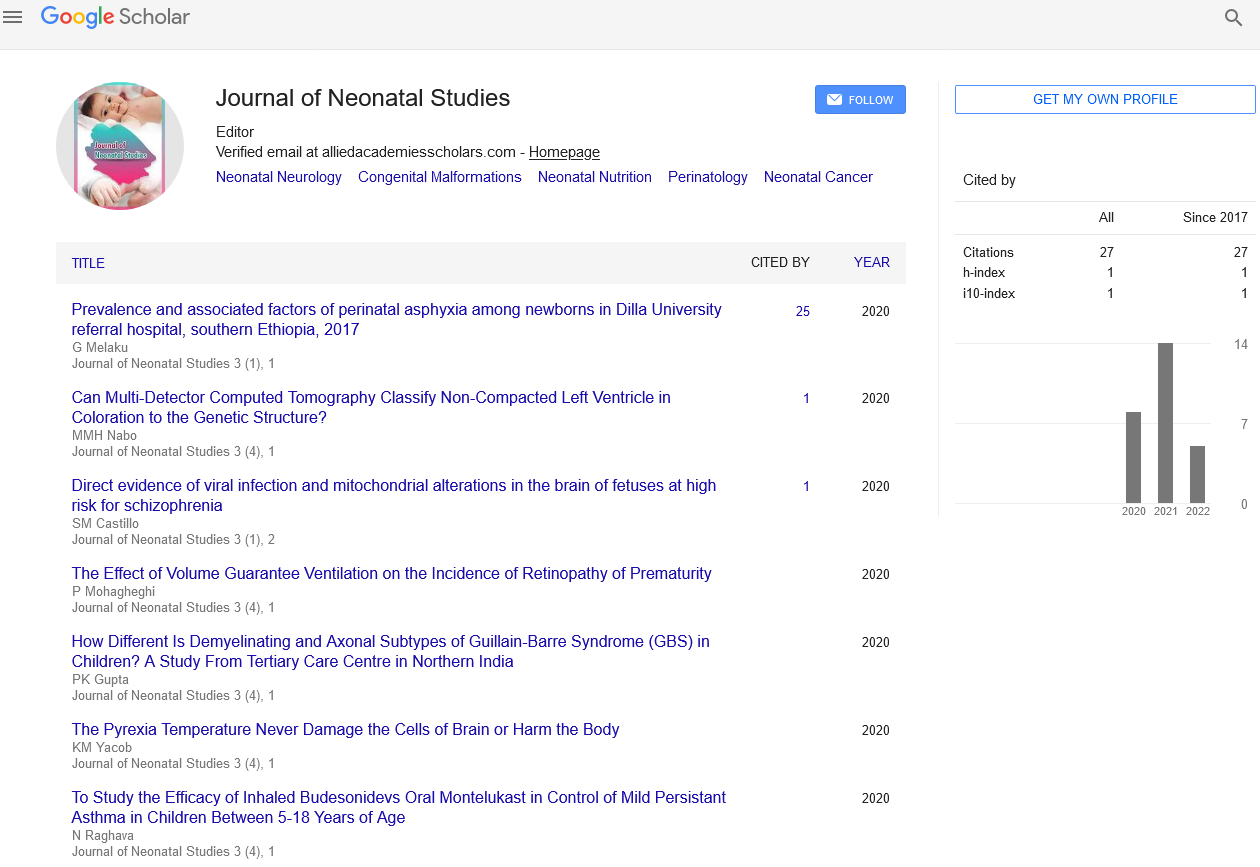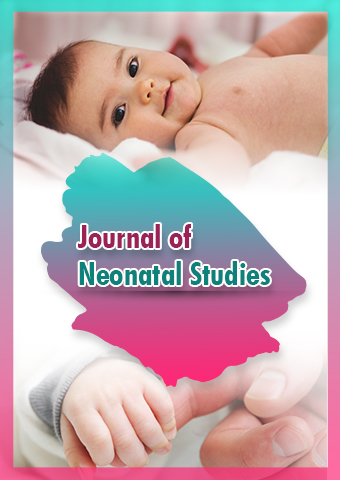Perspective - Journal of Neonatal Studies (2023) Volume 6, Issue 5
Nurturing the Newborn: A Comprehensive Guide to Neonatal Nutrition
- Corresponding Author:
- Jia Fan
Department of Neonatal, Nanyang Technological University, Singapore
E-mail: jiafan23@edu.sg
Received: 06-Sep-2023, Manuscript No. JNS-23-118955; Editor assigned: 08-Sep-2023, PreQC No. JNS-23-118955 (PQ); Reviewed: 25-Sep-2023, QC No. JNS-23-118955; Revised: 03-Oct-2023, Manuscript No. JNS-23-118955 (R); Published: 13-Oct- 2023, DOI: 10.37532/jns.2023.6(5).134-135
Introduction
The neonatal period, spanning the first 28 days of life, is a time of remarkable growth and development. Proper nutrition during this crucial phase is essential for supporting the health and well-being of newborns. This comprehensive guide delves into the intricacies of neonatal nutrition, covering the unique needs, feeding options, and best practices for ensuring optimal growth and development.
Description
Nutritional needs of neonates
Energy requirements: Newborns have high energy needs for growth and thermoregulation. Meeting these demands is crucial for their well-being.
Protein: Protein is essential for tissue growth. Breast milk and formula are primary sources, but protein quality and quantity matter.
Fats: Fats are a dense source of energy and support brain development. Breast milk and fortified formulas provide the necessary fats.
Carbohydrates: Carbohydrates supply energy and promote healthy bowel function. Lactose is the primary carbohydrate in breast milk.
Vitamins and minerals: Neonates require adequate vitamins and minerals, including vitamin D and iron. Supplementation may be necessary in some cases.
The importance of neonatal nutrition
Nutrition is the foundation of a newborn’s growth, organ development, and overall health. Proper neonatal nutrition not only promotes healthy physical growth but also supports the development of the baby’s brain and immune system. Neonates are particularly vulnerable, making it essential to provide them with the right balance of nutrients to help them thrive.
Breastfeeding
Benefits of breast milk: Breast milk offers numerous health benefits, including antibodies, optimal nutrient balance, and easier digestion.
Initiating breastfeeding: Early initiation of breastfeeding is crucial for establishing a good latch and milk production.
Frequency and duration: Newborns feed frequently, often every 2-3 hours. Feeding on demand helps establish a healthy milk supply.
Proper latch and positioning: Ensuring a good latch and positioning are essential for comfortable and effective breastfeeding.
Expressing and storing breast milk: Expressing breast milk can be useful for mothers returning to work or dealing with breastfeeding challenges.
Formula feeding
Types of formula: Choosing the right formula depends on the baby’s specific needs, whether it’s standard cow’s milk-based, hypoallergenic, or specialized for preterm infants.
Preparing formula: Correct preparation and hygiene are essential to ensure the baby receives a safe and nutritious meal.
Feeding schedule: Formula-fed babies often feed less frequently but consume larger volumes at each feeding.
Transition to solid foods
Introduction timing: Solid foods are introduced around 6 months, depending on the baby’s readiness and developmental cues.
First foods: Single-grain cereals, pureed vegetables, and fruits are common first foods.
Allergenic foods: Introduction of potentially allergenic foods should be done with care and monitored for any adverse reactions.
Special considerations
Preterm neonates: Premature babies have unique nutritional needs, and specialized formulas and fortified breast milk are often necessary.
Medical conditions: Babies with medical conditions, such as congenital heart disease or metabolic disorders, may require tailored nutrition plans.
Breast milk donation: Donor breast milk can be beneficial for preterm infants and those with medical complications.
Balanced nutrient intake
Newborns require a combination of macronutrients, including carbohydrates, proteins, and fats, for their growth and energy needs. These nutrients are essential for tissue development, particularly the brain, which undergoes rapid growth during the neonatal stage.
Micronutrients
Micronutrients, such as vitamins and minerals, are equally vital for neonatal health. Some key nutrients include vitamin D for bone development, iron for red blood cell production, and calcium for strong bones.
Feeding challenges
Latching issues: Latching problems can hinder breastfeeding. Consultation with a lactation consultant can help resolve these issues.
Colic and reflux: Some babies experience colic or reflux, which can affect feeding. Adjusting feeding techniques and discussing with a pediatrician can offer solutions.
Slow weight gain: Slow weight gain can be a concern. Addressing this issue involves assessing feeding frequency and volume and considering underlying factors.
Nutritional challenges
Neonates can face various nutritional challenges, including feeding difficulties, reflux, allergies, and food intolerances. Identifying and addressing these challenges is vital for the baby’s health and comfort.
Hydration and temperature regulation
Maintaining proper hydration and body temperature is vital for neonates. Ensuring a comfortable room temperature and monitoring fluid intake is essential for their well-being.
Support and education
Parents should seek support from healthcare providers, including pediatricians and lactation consultants, to navigate neonatal nutrition. Education about proper feeding practices and baby cues is invaluable. Adequate caloric intake, hydration, and rest are essential.
Nutrition beyond the neonatal stage
As the neonatal stage transitions into infancy, the baby’s nutritional needs evolve. Introducing solid foods and expanding the diet to meet changing requirements is essential for continued healthy growth and development.
Conclusion
A journey of resilience and hope
Navigating neonatal diseases and disorders is a challenging and emotional journey for both parents and healthcare providers. Early diagnosis, appropriate treatment, and ongoing support are essential in helping neonates overcome these health challenges. Despite the difficulties, many neonates grow up to be healthy individuals, thanks to advancements in medical care and the dedication of those who care for them. This guide aims to shed light on these conditions and provide a source of information and support for families and caregivers during this critical period of life.

